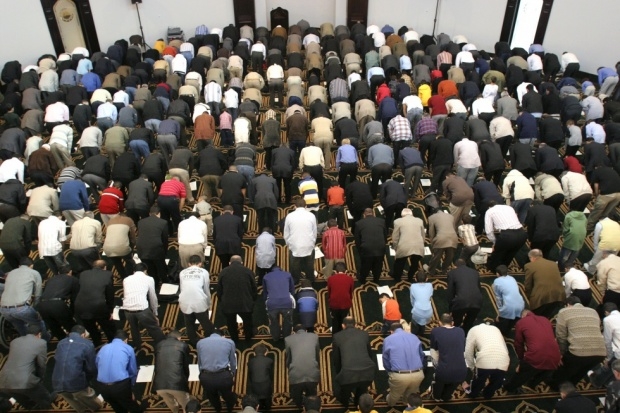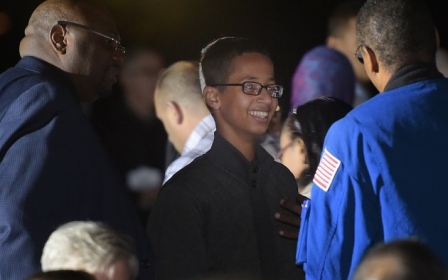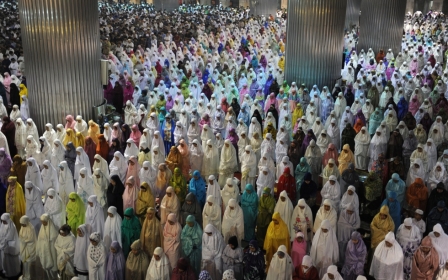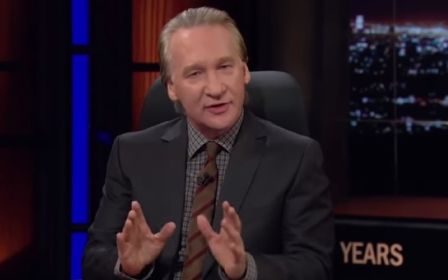Religion is not to blame

If I got a penny for every time I was told that religion is the cause of all trouble, I'd be a rich woman by now. If only we had John Lennon's religionless world, there would be no war, or conflict and everyone would love their neighbour. If only the theologians, clergymen, mullahs and priests could get on, the world's problems would be resolved at a stroke.
No doubt, religion does play a part in many of the crises and conflicts raging around us. But more often than not, these problems take on a religious name and speak through the medium of religion, while having their roots in socio-political factors.
Examples are found in the Northern Ireland dispute as in the Middle East conflict. Though those at loggerheads happen to belong to divergent confessional communities, Catholics and Protestants, Jews and Muslims/Christians, they did not come to blows because of their religious affiliations. Their grievances are fundamentally political, even if they hide themselves in the guise of religion and communicate in its language.
Religion is often the mirror that reflects worldly tensions. To say that religion is divisive is to attempt no analysis of the problems at hand. It is to stop at the surface making no effort to dig deeper for the underlying problems seething underneath.
Take the orgy of sectarian bloodshed that has been raging in Iraq for over a decade, for instance. Sunnis and Shia have been killing each other by the tens on a daily basis. Do not venture into a Sunni dominated area if your name happens to be Hassan, and you have more chance of ending up with a slit throat on some street corner if you suddenly lost your way and found yourself in Sadr city and you were called Omar.
But let us not stop there, let us ask the difficult questions others would rather we left undisturbed. Why do Iraq's Sunni and Shia kill each other today when they didn't years ago? Why were they able to coexist before, but find that impossible to do today? Every Iraqi tribe and family numbers both Sunni and Shia. They intermingled, intermarried, lived not only side by side but under the same roof, often sharing the same bed. This was the case even under Saddam's despotic rule. Then and before, for centuries Iraq was one of the world's most diverse places, a veritable mosaic of religions, ethnicities, sects and denominations, Muslims, Christians, Sabians, Yazidis, Sunni, Shia, Kurds, Turkmen all peacefully shared the same space.
This was Iraq before. It isn't Iraq today, since the American/British invasion and Bremer's transitional authority, which destroyed Iraq's political order, substituting it for one grounded in sectarianism and ethnic factionalism. National identity was broken asunder, the common torn apart, only narrow group affiliations remained. In the chaos that followed, every splinter group wanted to seize all, leaving the rest with nothing. Forming the security and police forces in the new Iraq along sectarian lines poured oil over fire, equipping one faction with the tools it would later use in its quest to exterminate its rivals.
Shiism and Sunnism are not to blame. Bush, Blair and Bremer are.
Neither are Judaism, Christianity, or Islam responsible for the Middle East conflict. Palestinians and Israelis invoke religious symbols and references in their rationalisation of the dispute, in a space laden with sacred meanings for both sides. But the truth is that this is not a conflict over a mosque, church, or temple, though it has come to be symbolised by such monuments. Primarily, and above all, it is over land, dispossession, settlement, occupation and will to liberation. The relationship is more between occupier and occupied than between Jew and Muslim/Christian. More than the Quran or the Old Testament, it is the Balfour Declaration and the great powers' strategies in the region that have spawned and dictated the course of this long and painful drama.
Many more examples could be cited for the superficiality of explanations of socio-political movements and phenomena in exclusively religious terms, from the Reformation in 16th century Europe, to Islamic radicalism in the 21st. Religion is neither the root of all virtue, nor the cause of all evil. Good conditions spawn good religion, bad conditions bad religion. The evils of reality have a habit of metamorphosing into evil religion. It is the chaotic war-torn and crisis ridden Middle East today that fosters and nourishes the extreme violent ideology of al-Qaeda and ISIS.
Humans and societies are not blank pages, but the carriers of a profound cultural, symbolic, and historic heritage, through which they communicate and make sense of reality. This imbedded repository of values, images and references, is inevitably invoked in peace as in war, and more so in war and times of turmoil. Amidst tension, cultural, religious, and national identities are awakened, activated, and intensified.
This is not to say, as Marx had done, that religion is a superfluous illusion. It is an integral part of the collective memory and consciousness of groups and individuals. Through it they ascribe meaning to their experiences and justification to their actions. It functions silently unnoticed amidst stability and calm and becomes more vocal, more visible and sometimes more explosive through crisis and turbulence. There is no inherently peaceful religion, and no inherently aggressive religion. Take Christianity, for instance, it inspired asceticism and otherworldliness, just as it ignited the flames of conflict and schism, in the 16th century, wars of religion as in the Crusades. There is no religion per se.
In short, we would do well to avoid peering at reality through the prism of ideas and doctrines. Humans, you see, walk on their feet, not their heads.
- Soumaya Ghannoushi is a British Tunisian writer and expert in Middle East politics.
The views expressed in this article belong to the author and do not necessarily reflect the editorial policy of Middle East Eye.
Photo: Muslims praying in a mosque (AFP)
New MEE newsletter: Jerusalem Dispatch
Sign up to get the latest insights and analysis on Israel-Palestine, alongside Turkey Unpacked and other MEE newsletters
Middle East Eye delivers independent and unrivalled coverage and analysis of the Middle East, North Africa and beyond. To learn more about republishing this content and the associated fees, please fill out this form. More about MEE can be found here.





